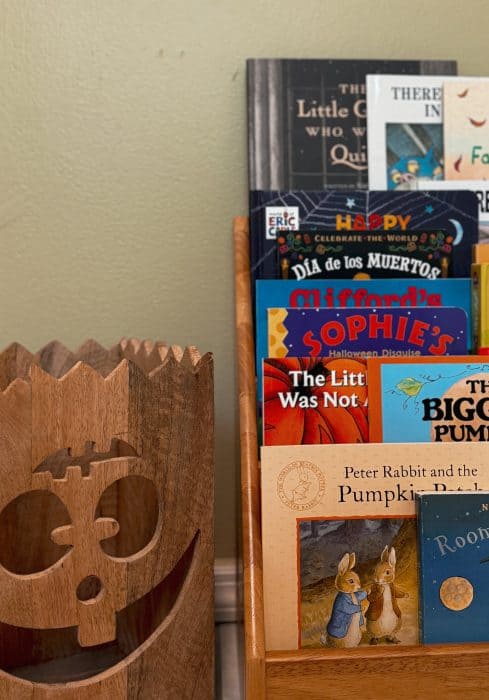
As a parent, embarking on the search on how to choose a daycare for your baby or young child can be both exciting and overwhelming. It’s a significant decision that sparks a mix of emotions, from anticipation to anxiety. In this blog post, we’ll guide you through the process of finding a good daycare while addressing the emotional rollercoaster that accompanies this journey. Our aim is to offer you empathetic support and practical advice to help you make the best choice for your little one.
1. Understanding the Importance of Choosing the Right Daycare:
Selecting the right daycare is a crucial step in your child’s early development. It’s a place where they’ll spend a significant amount of time, learn, and build social skills.
A nurturing and supportive environment during these formative years can greatly impact their future well-being.
Look for daycares that prioritize a balance of play, learning, and social interaction to foster your child’s holistic growth.

2. Characteristics of a Good Daycare:
How to choose a good daycare should exhibit these characteristics:
a. Qualified and Caring Staff:
The daycare’s staff should be well-trained, experienced, and passionate about caring for children. Look for caregivers who genuinely connect with the children, showing patience, warmth, and empathy.
b. Clean and Safe Environment:
Safety is paramount in any daycare. Ensure the facility is clean, child-proofed, and meets all safety regulations. Regular cleaning routines and proper sanitation protocols are essential for maintaining a healthy space for the children.

c. Age-Appropriate Learning and Play:
An excellent daycare will provide age-appropriate activities and learning opportunities to stimulate your child’s cognitive, emotional, and physical development. Look for a curriculum that balances structured learning and unstructured play. Especially schools that might incorporate a lot of nature play can be a great one to consider.
d. Small Staff-to-Child Ratios:
Lower staff-to-child ratios allow caregivers to offer individualized attention to each child. This promotes better supervision, personal connections, and enhanced learning experiences.
e. Open Communication:
The daycare should encourage open and transparent communication with parents. Regular updates on your child’s progress and activities will give you peace of mind and help you stay involved in your child’s development.
f. Safety Policies and Emergency Plans:
Ensure that the daycare has well-defined safety policies and emergency plans. They should have procedures in place to handle various situations, such as accidents, illnesses, and unexpected events.
g. Positive Reviews and Recommendations:
Seek feedback from other parents and read online reviews about the daycare you’re considering. Positive recommendations and testimonials from satisfied parents can be a good indicator of the daycare’s quality.

3. How to Choose a Daycare:
Start your search by seeking recommendations from friends, family, and other parents. Personal referrals often provide valuable insights into the daycare’s reputation and the experiences of other families.
While conducting your research, pay attention to the daycare’s proximity to your home or workplace, as the convenience can be an essential factor in the decision-making process.
Visit potential daycares to get a firsthand feel for their atmosphere.
Observe how the staff interacts with the children and whether they show genuine care and enthusiasm. A welcoming and loving environment is vital for your child’s emotional well-being while away from home.
4. Questions to Ask a Daycare:
When visiting potential daycares, come prepared with questions that will help you gain a deeper understanding of their approach to childcare. Inquire about staff-to-child ratios, daily routines, and the curriculum.
A daycare with a well-structured program that includes activities suited to your child’s age and developmental stage can be highly beneficial.
Additionally, ask about the qualifications and training of the staff. Highly trained and experienced caregivers can provide the best support for your child’s growth and learning.
Don’t hesitate to discuss how the daycare handles discipline and emergencies to ensure your child’s safety and well-being are top priorities.

5. Dealing with Daycare Anxiety:
It’s natural to feel anxious about leaving your child in the care of others. Remember that you’re not alone in experiencing these emotions.
Many parents go through similar feelings when searching for a daycare. Reach out to other parents who have gone through this process for support and reassurance. Their experiences and insights can help alleviate some of your worries.
To ease daycare anxiety, take the time to visit the daycare multiple times, preferably at different times of the day.
This will give you a clearer picture of the daycare’s routines and how they handle different situations.
Engage in open communication with the daycare staff and director, discussing any concerns you may have. They should be understanding and willing to address your worries.
Many times daycares provide camera access, or access through an app where they can add pictures of your child throughout the day on what they are doing, learning, diaper changes, lunch/snacks, etc.

6. Daycare vs. In-home Child Care:
Deciding between daycare and in-home child care is a personal choice that depends on your family’s unique circumstances and preferences.
Daycares offer socialization opportunities and structured learning environments. Children have the chance to interact with their peers, which can be beneficial for their social development.
In contrast, in-home child care may provide a more intimate setting with a single caregiver. Especially integrating morning rhythms that can integrate morning baskets with time to soak in the activities.
Some children thrive in this one-on-one environment, benefiting from individualized attention. Consider your child’s temperament, learning style, and specific needs when making this decision.
7. The Ideal Timing:
It’s never too early to start looking for a daycare, especially in areas with high demand.
Begin your search at least several months in advance to allow ample time for research, visits, and enrollment procedures.
Starting early will also give you the flexibility to explore various options thoroughly and make a well-informed decision.
When or how to choose a daycare for your baby/child is an emotional journey filled with anticipation and, sometimes, anxiety.
Embrace the process, knowing that you are making an important decision that will positively impact your child’s early years.
Trust your instincts, ask questions, seek support, and remember that finding the right daycare is an investment in your child’s bright future.
Parenthood is a remarkable journey, and we are here to support you every step of the way. May you find a daycare that feels like a second home, where your child can grow, learn, and flourish.
Remember that the love and care you provide as a parent lay the foundation for a happy and fulfilling childhood for your little one.













